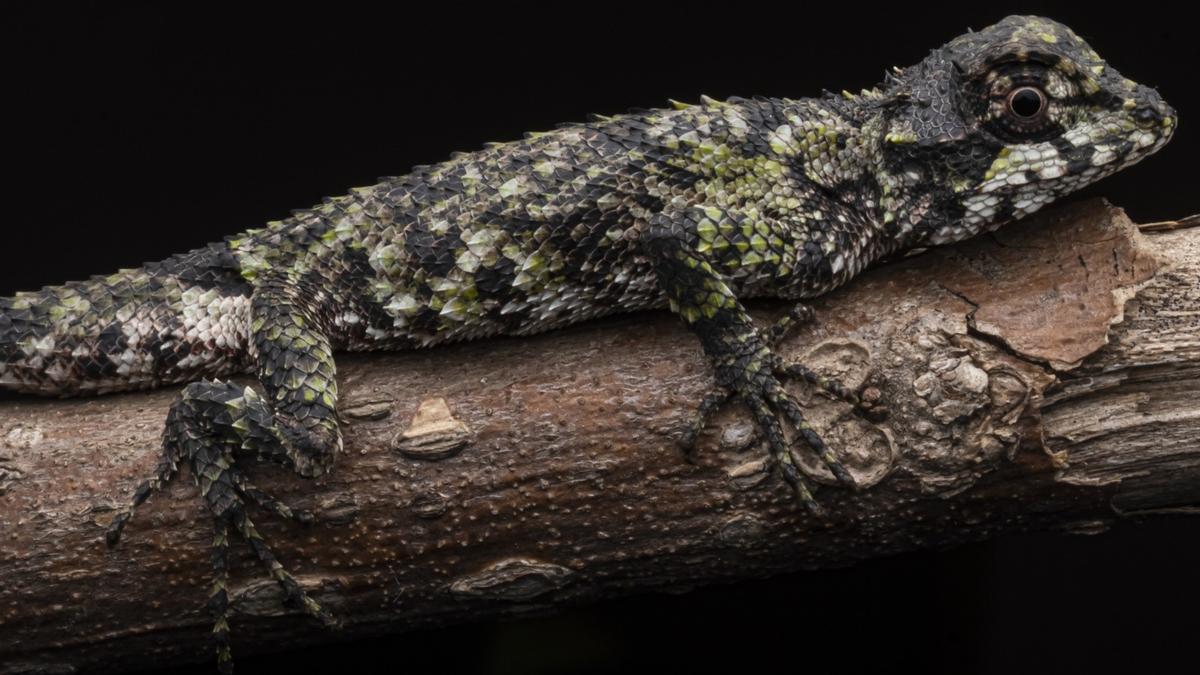Calotes zolaiking

- 31 May 2025
In News:
The rare lizard species Calotes zolaiking has been recorded for the first time in Meghalaya, marking a significant extension of its known habitat and triggering grassroots conservation efforts.
About Calotes zolaiking
- Scientific Classification: Belongs to the Calotes genus under the Agamidae family.
- First Described: In 2019 from Aizawl district, Mizoram.
- Appearance: About 5 inches in length; green body with dark patches and strongly keeled scales (scales with a raised ridge).
- Behaviour: Arboreal (tree-dwelling), diurnal, fast runners, and capable swimmers.
- Diet: Insectivorous—feeds on insects and small invertebrates.
Distribution and Habitat
- New Sighting: Mawmluh village, East Khasi Hills, Meghalaya, April 2024.
- Range Extension: Approx. 172 km aerially from the original Mizoram locality.
- Genus Distribution: Found across India, Sri Lanka, Southeast Asia, and parts of Oceania.
- India's Richness: 14 known Calotes species in India; 9 recorded in the Northeast region.
Conservation Significance
- Community Role: Local residents Goldenstar Thongni and Banyllashisha Wankhar played a key role in identifying and collecting specimens.
- Catalyst for Conservation: The species' discovery has motivated the local community in Mawmluh and Sohra (Cherrapunji) to strengthen forest protection amidst threats from limestone mining and industrial activities.
- Sacred Groves: Traditional conservation spaces like sacred groves are being revitalized in light of the new biodiversity significance.
- Scientific Impact: The find was featured in Zootaxa, a peer-reviewed taxonomy journal, adding global recognition.
Broader Ecological Relevance
- Biodiversity Surveys: The discovery underscores the need for continuous herpetofaunal surveys in the Khasi Hills due to forest degradation.
- Historical Context: Cited alongside Stoliczkia khasiensis, a snake species last seen in 1870, highlighting the risk of species being lost without systematic documentation.
